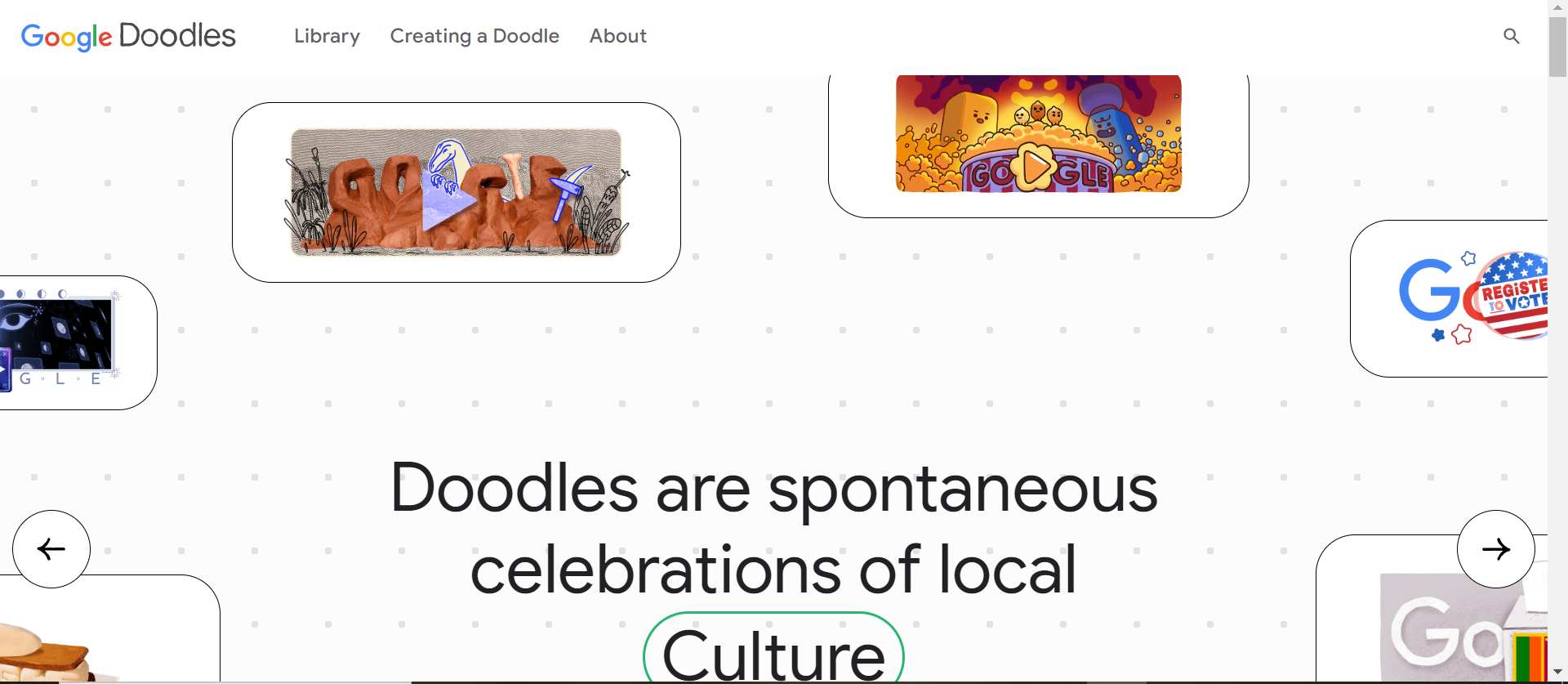The Evolution of Google: The Birth of a Search Giant
In the vast landscape of the internet, one name stands out as a beacon of information and innovation: Google. From its humble beginnings in a dorm room to becoming the most popular search engine in the world, Google’s journey is a fascinating tale of ambition, ingenuity, and relentless pursuit of knowledge. Let’s delve into the history of Google and how it became the powerhouse we know today.
The Humble Beginnings 
The story of Google starts with two Stanford University students, Larry Page and Sergey Brin. In 1995, Page and Brin met while pursuing their PhDs in computer science. Despite their initial disagreements, they quickly found common ground in their shared passion for data mining and the internet.
In January 1996, they began working on a research project called “BackRub.” The project aimed to develop a new kind of search engine that could analyze the relationships between websites. Page and Brin believed that the number and quality of links to a page could serve as a measure of that page’s importance. This innovative approach set their search engine apart from the existing ones, which ranked results based on the number of times the search term appeared on a page.
The Birth of Google
By 1997, Page and Brin had developed an early version of their search engine, which they named “Google.” The name was a play on the mathematical term “googol,” representing the number 1 followed by 100 zeros, reflecting their mission to organize the immense amount of information available on the web.
In 1998, they received their first major investment of $100,000 from Andy Bechtolsheim, co-founder of Sun Microsystems. This funding allowed them to officially launch Google Inc. on September 4, 1998. They set up their first office in a garage in Menlo Park, California, and began working on improving their search engine.
The Rise to Dominance
Google’s search engine quickly gained popularity due to its clean interface, relevant search results, and speed. Unlike other search engines of the time, which were cluttered with ads and irrelevant links, Google provided users with a straightforward and efficient search experience.
In 2000, Google introduced AdWords, an online advertising service that allowed businesses to display ads based on users’ search queries. This marked the beginning of Google’s revenue generation, turning it into a profitable enterprise. AdWords was a game-changer, providing a reliable source of income that enabled Google to expand its operations and continue improving its search algorithms.
Innovations and Expansion
Over the years, Google continued to innovate and expand its services. In 2004, it launched Gmail, offering users 1 GB of storage space, significantly more than any other email service at the time. This move set a new standard for email storage and usability.
The same year, Google went public with an initial public offering (IPO) that valued the company at $23 billion. This milestone solidified Google’s position as a major player in the tech industry and provided it with the capital to pursue further innovations.
In 2005, Google acquired Android Inc., a small startup developing a mobile operating system. This acquisition paved the way for the launch of the Android OS, which would go on to dominate the global smartphone market. Google’s entry into the mobile space was a strategic move that ensured its search engine and other services remained accessible to users on the go.
Google’s Impact on the World
Google’s influence extends far beyond its search engine. It has revolutionized the way we access and use information, making it easier for people to find answers, connect with others, and manage their daily lives. Google Maps, for example, has transformed how we navigate the world, providing detailed directions, real-time traffic updates, and even street-level views of locations.
example, has transformed how we navigate the world, providing detailed directions, real-time traffic updates, and even street-level views of locations.
![]() Google’s commitment to innovation has also led to the development of groundbreaking technologies like Google Translate, which helps bridge language barriers, and Google Photos, which offers unlimited photo storage and advanced organization tools.
Google’s commitment to innovation has also led to the development of groundbreaking technologies like Google Translate, which helps bridge language barriers, and Google Photos, which offers unlimited photo storage and advanced organization tools.
Challenges and Controversies
Despite its many successes, Google has faced its share of challenges and controversies. The company has been criticized for its data collection practices, privacy concerns, and its dominance in the online advertising market. Governments and regulatory bodies around the world have scrutinized Google’s business practices, leading to numerous legal battles and fines.
However, Google has continued to adapt and evolve, addressing many of these concerns while maintaining its commitment to providing valuable services to its users.
The Future of Google
As we look to the future, Google’s mission remains the same: to organize the world’s information and make it universally accessible and useful. With advancements in artificial intelligence, machine learning, and quantum computing, Google is poised to continue shaping the future of technology and information.
Google’s journey from a university project to a global tech giant is a testament to the power of innovation, determination, and the pursuit of knowledge. As the company continues to evolve, one thing is certain: Google’s impact on the world will be felt for generations to come.
Frequently Asked Questions About Google
What is Google?
Google is a multinational technology company specializing in Internet-related services and products. These include search engines, online advertising technologies, cloud computing, software, and hardware. Google is best known for its search engine, which is the most widely used in the world.
Who founded Google and when?
Google was founded by Larry Page and Sergey Brin on September 4, 1998. The two met at Stanford University while pursuing their PhDs in computer science.
When did Google come out?
Google was officially launched on September 4, 1998. It was founded by Larry Page and Sergey Brin while they were Ph.D. students at Stanford University. The company quickly grew to become one of the leading search engines on the internet.
How did Google get its name?
The name Google is a play on the mathematical term “googol,” which represents the number 1 followed by 100 zeros. This name reflects the founders’ mission to organize an immense amount of information available on the web.
What was Google’s original search engine called?
The original search engine developed by Larry Page and Sergey Brin was called BackRub. It analyzed the relationships between websites to rank their importance.
When did Google go public?
Google went public with its initial public offering (IPO) on August 19, 2004. The IPO raised $1.67 billion, giving Google a market value of $23 billion.
What is AdWords?
AdWords is an online advertising service developed by Google. It allows businesses to display ads based on users’ search queries. Introduced in 2000, AdWords was a significant development for Google, providing a major source of revenue.
What are some of Google’s most popular services and products?
Some of Google’s most popular services and products include:
- Google Search: The company’s flagship search engine.
- Gmail: An email service with extensive storage and powerful features.
- Google Maps: A mapping service offering directions, real-time traffic updates, and street views.
- Google Drive: A cloud storage service.
- Google Photos: A photo storage and sharing service with advanced organization tools.
- Android: A mobile operating system acquired in 2005.
How does Google make money?
Google primarily makes money through its advertising services. AdWords and AdSense allow businesses to display ads on Google’s search results and partner websites. These ads are often tailored to users’ interests and search queries, making them highly effective.
What is the significance of the Android acquisition?
Google acquired Android Inc. in 2005, which led to the development of the Android operating system. Android has since become the world’s most popular mobile OS, providing a platform for Google’s services on billions of devices globally.
What are some of Google’s innovative technologies?
Google is known for its commitment to innovation and has developed several groundbreaking technologies, including:
- Google Translate: A service that helps bridge language barriers by translating text and speech between multiple languages.
- Google Assistant: An AI-powered virtual assistant that can perform tasks and answer questions.
- Google Cloud Platform: A suite of cloud computing services that provide infrastructure and tools for businesses.
- Google Photos: An advanced photo storage service with AI-powered organization and search features.
-
What challenges has Google faced?
Google has faced several challenges and controversies, including:
- Privacy Concerns: Criticisms about how Google collects and uses user data.
- Antitrust Issues: Legal battles and fines related to Google’s dominance in online advertising and search.
- Censorship: Controversies around complying with censorship laws in different countries.
What is Google’s mission?
Google’s mission is “to organize the world’s information and make it universally accessible and useful.” This mission drives the company’s efforts to innovate and improve its services continually.
What does the future hold for Google?
In conclusion, Google’s history is a remarkable story of how two students’ vision transformed the way we interact with information. From its early days in a garage to its current status as a global leader in technology, Google’s evolution is a testament to the power of ideas and the relentless pursuit of excellence.
What is Google Doodles?

Google Doodles A Celebration of Culture, History, and Innovation
Google Doodles are playful and creative modifications of the Google logo on its homepage that celebrate significant events, holidays, famous personalities, and milestones. The idea of doodles originated in 1998 when Google founders Larry Page and Sergey Brin altered the logo to indicate they were attending the Burning Man festival. This small gesture sparked a tradition that has evolved into an integral part of Google’s identity.
The themes of Google Doodles are diverse, ranging from global holidays like New Year’s Day and Earth Day to honouring prominent historical figures such as Albert Einstein, Marie Curie, and Martin Luther King Jr. They have also recognise significant anniversaries of scientific breakthroughs, artistic achievements, and cultural traditions worldwide.
Doodles can be static images or interactive games and animations, enhancing user engagement while educating the audience about the person, event, or achievement being commemorated. For example, Doodles celebrating major sporting events, like the Olympics or the World Cup, often feature fun games for users to play directly on Google’s homepage.
Doodles have become an effective way to spark curiosity and raise awareness about different cultures, histories, and causes, as well as support lesser-known but impactful figures and events. Users can also browse the full archive of past Doodles through the dedicated Google Doodles page, making it an interactive journey through the history of this fascinating digital art tradition.
Google Doodles were originally created by Larry Page and Sergey Brin, the founders of Google. The concept first emerged in 1998 when they placed a stick figure behind the second “O” in the Google logo to indicate that they were attending the Burning Man festival. This playful gesture marked the birth of what would later become the iconic Google Doodles we see today.
Over time, the responsibility for creating Google Doodles was handed over to a dedicated team of illustrators and engineers known as the Doodle team, who continue to craft these unique tributes to cultural events, historical figures, and milestones.




